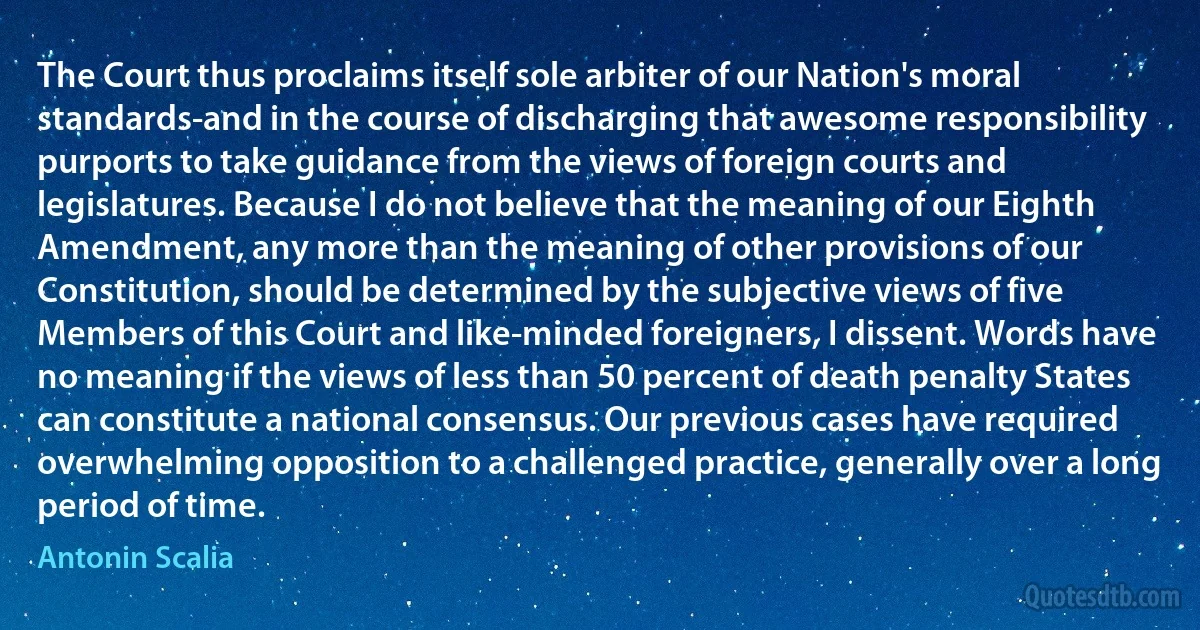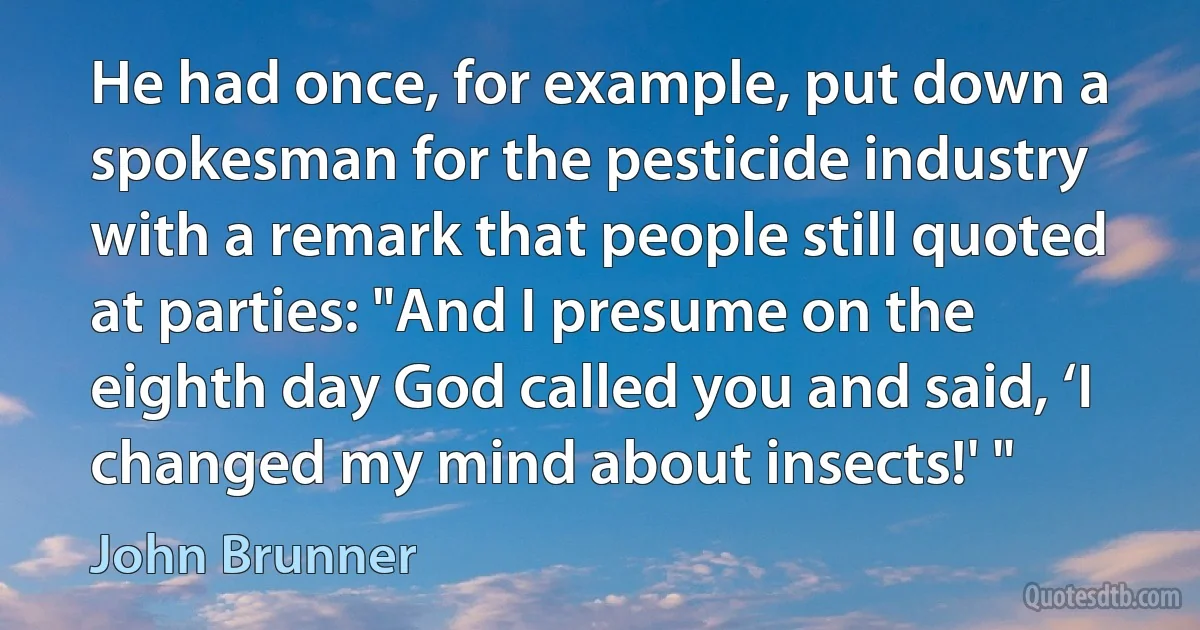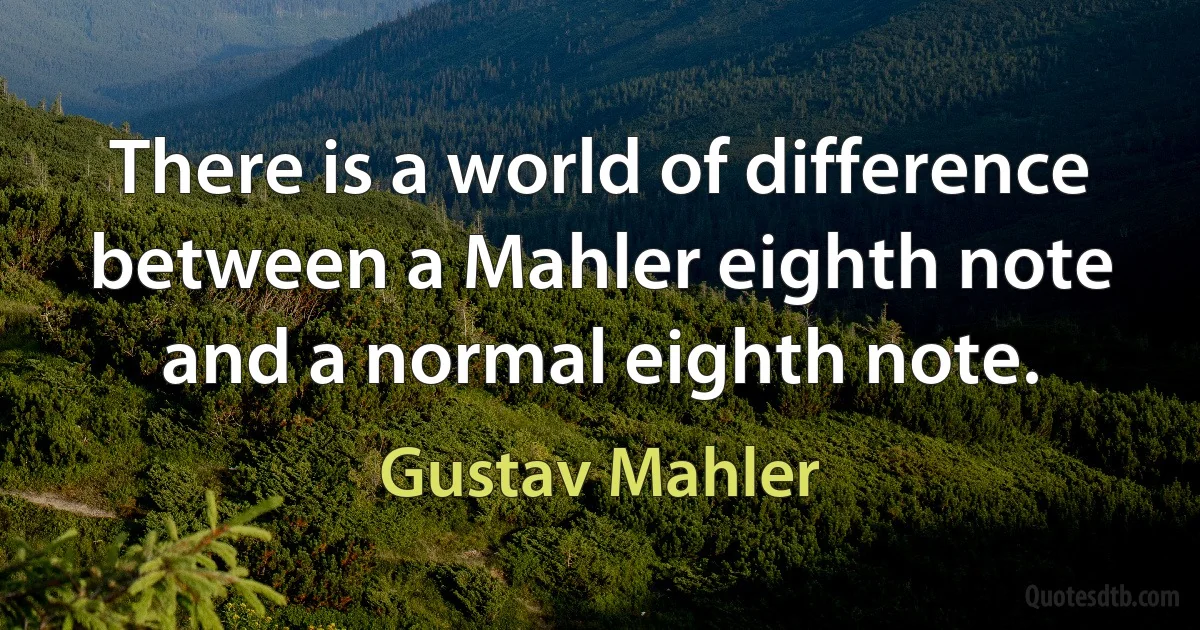Eighth Quotes - page 2
I returned last week...from visiting the Italian front. I was up with the Eighth Army, that Army which will always seem to me to epitomize the unity of our Commonwealth and Empire. I saw there in Italy Canadians, South Africans, and New Zealanders. I recalled talking with General Alexander the great deeds of the Australians. As I saw our lads from all our countries so fine and gallant, I was thrilled with pride.

Clement Attlee
On the topic of supplying weapons to the Eighth Route Army, this needs the decision from the USSR; it is of the USSR's opinion that, had the weapons been supplied, instead of helping you(Chinese Communist), it would only harm you....Because it would help to deteriorate the relationship between KMT and CCP, and give excuses for the KMT to isolate and apply sanction on Yan'an. Finaly,...Comintern made a gift of US$300,000 to CCP.

Georgi Dimitrov
China under the Tang, Sung, and Ming dynasties, the Islamic world from the eighth to the twelfth centuries, and Byzantium from the eighth to the eleventh centuries far surpassed Europe in wealth, territory, military power, and artistic, literary and scientific achievements. Between the eleventh and thirteen centuries, European culture began to develop, facilitated by the "eager and systematic appropriation of suitable elements from the higher civilization of Islam and Bizantium, together with adaptation of this inheritance to the special conditions and interests of the West."

Samuel P. Huntington
So it was that I gave about 1949 my 'Lecture on Nothing' at the Artists' Club on Eighth Street in New York City (started by Robert Motherwell), which predated the popular one associated with Philip Pavia, Bill de Kooning, et al. ). This 'Lecture on Nothing' was written in the same rhythmic structure I employed at the time in my musical compositions (Sonatas and Interludes, Three Dances, etc.). One of the structural divisions was the repetition, some fourteen times, of a single page in which occurred the refrain, 'If anyone is sleepy let him go to sleep.' Jeanne Reynal, I remember, stood up part way through, screamed, and then said, while I continued speaking, 'John, I dearly love you, but I can't bear another minute.' She then walked out. Later, during the question period, I gave one of six previously prepared answers regardless of the question asked. This was a reflection of my engagement in Zen.

John Cage
After the publication of my dialogues, I was summoned to Rome by the Congregation of the holy Office, where, being arrived on the 10th of February 1633, I was subjected to the infinite clemency of that tribunal, and of the Sovereign Pontiff, Urban the Eighth; who, notwithstanding, thought me deserving of his esteem.

Galileo Galilei
Of the nature of Death and the Dead we may enumerate twelve kinds. First there are those who become new gods, for whom new universes are born. Second those who praise. Third those who fight as soldiers in the unending war with evil. Fourth those who amuse themselves among flowers and sweet springs with sports. Fifth those who dwell in gardens of bliss, or are tortured. Sixth those who continue as in life. Seventh those who turn the wheel of the universe. Eighth those who find in their graves their mothers' wombs and in one life circle forever. Ninth ghosts. Tenth those born again as men in their grandsons' time. Eleventh those who return as beasts or trees. And last those who sleep.

Gene Wolfe
On the morning of January 11th, 1860, I passed, for the eighth time, through the Golden Gate... As the shores of California faded in the distance, and the summits of the Coast Range sank under the blue horizon, I bade farewell - yes, I do not doubt, forever - to those scenes which, however changed or unchanged, must always posses an ineffable interest for me.

Richard Henry Dana, Jr.
I'll sing you a song of the long ago -
Seven shine the shiners, oh!
What did the Seven do way back when?
Why, they wove the Charter then!
Five for the warp, from beginning to end.
Two for the woof, to make and mend.
That's the Seven, but what of the Nine-
What of the two who chose not to shine?
The Eighth did hide, hide all away,
But the Seven caught him and made him pay.
The Ninth was strong and fought with might,
But lone Orannis was put out of the light,
Broken in two and buried under hill,
Forever to lie there, wishing us ill.

Garth Nix
Still haunted by Haiku, and tried my hand at it, but I fall pitifully short of the Wordsworthian touch. But failure in this realm turned my mind to an old enthusiasm of mine, the Welsh englyn. This verse form was derived by the Welsh from the inscriptions which their Roman conquerors put on tombs ... A good englym must have four lines, of ten, then six, syllables, the last two lines having seven syllables each. In the first line there must be a break after the seventh, eighth, or ninth syllable, and the rhyme with the second line comes at this break; but the tenth syllable of the first line must either rhyme or be in assonance with the middle of the second line. The last two lines must rhyme with the first rhyme in the first line, but the third or fourth line must rhyme on a weak syllable. Got that?

Robertson Davies
The seven dwarfs were devastated when an eighth joined them one morning before they went to work. He went straight into their house,took little plates and cutlery out of his waistcoat,grabbed the mining tools and was the first dwarf to set off for work. Caught off-guard by his cheeky but honest manner,the others followed,angry because he was showing them the way along the path they took every day and surprised when they found he had turned into dark grotto into a glass palace with Snow White hewn in gold. For these established prospectors it was terrible to behold the intruder appropriating for himself the right to mine the virgin goldmine.

Günter Brus
All we can say is that, as the result of a process which went on from the fourth century to about the eighth, a standard type of text was produced, which is found in the vast majority of the manuscripts that have come down to us. At least ninety-six per cent of the extant manuscripts of the Greek New Testament are later than the eighth century; and of those only a handful preserve traces of the other types of text which were in existence before the adoption of the standard text, and out of which it was created.

Frederic G. Kenyon
Abraham took an early start as a hunter, which was never much improved afterwards. A few days before the completion of his eighth year, in the absence of his father, a flock of wild turkeys approached the new log cabin, and Abraham with a rifle-gun standing inside, shot through a crack and killed one of them. He has never since pulled a trigger on any larger game.

Abraham Lincoln
From this place he removed to what is now Spencer County, Indiana, in the autumn of 1816. Abraham then being in his eighth year. ...though very young, was large for his age, and had an ax put into his hands at once; and from that till within his twenty-third year he was almost constantly handling that most useful instrument - less, of course, in plowing and harvesting seasons.

Abraham Lincoln



